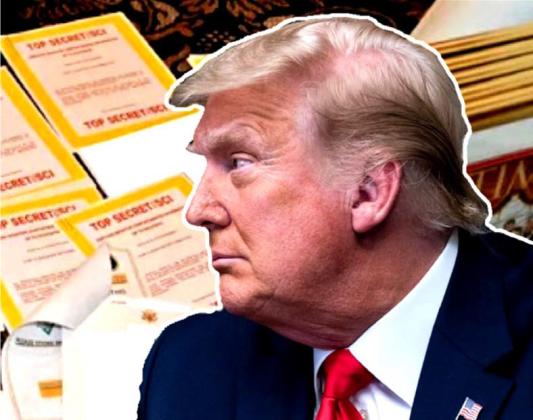The U.S. Department of Justice (DOJ) last Friday released an unsealed federal indictment of former President Donald Trump relating to the mishandling of classified documents, obstructing justice and making false statements.
Trump was indicted on the charges and then attended his arraignment on Tuesday in Miami, where he pleaded not guilty to all charges.
Special Counsel Jack Smith stated the indictment charged the former president of violating seven federal laws but will face 37 separate charges because each classified document he allegedly held on to illegally is charged in a separate count, as well his alleged efforts to hide classified information from federal investigators is charged in several ways. His longtime aide Walt Nauta faces six charges, five of which are also lodged against Trump.
The case will be tried in the Southern District of Florida.
According to the indictment, Trump allegedly shared a classified map related to an ongoing military operation and improperly stored boxes containing classified documents at his Florida home, Mar-a-Lago, including in a ballroom, bathroom and shower.
Additionally, federal prosecutors also accused Trump of defying requests from the DOJ to hand over classified documents, making false statements to the FBI and tapping his aides to help hide boxes of documents.
Federal prosecutors indicated they have a recording of Trump discussing a classified Pentagon document he kept after leaving office which allegedly details a potential attack on Iran; Trump acknowledged he retained the sensitive document after leaving the White House, representing a potentially significant piece of the Justice Department’s investigation.
According to the recording, Trump said he wanted to share the information but understood the potential legal limitations – particularly
the Espionage Act.
Given the Espionage Act covers a lot of provisions and activities, Trump could be charged because he doesn’t have lawful access to a classified document once out of office – and if he retained and continued to hold on to those classified documents, even if not intending to transmit them, it is still a violation of the Espionage Act.
Evidence suggests that Trump knew many of the documents he was retaining were classified and moved them around to hide them to make sure the FBI didn’t obtain them and keep them from the National Archives.
A conviction does not require any evidence of a desire to disseminate the classified information; having it in an unauthorized location is enough. But the crime requires a “willful” mishandling of material “the possessor has reason to believe could be used to the injury of the United States or to the advantage of any foreign nation.”
Charges are generally not brought without some aggravating factor making clear the retention was not accidental — such as evidence of intent to share the information, signs of disloyalty to the U.S. government, or simply the volume of documents taken.
The maximum punishment for each count of unlawful retention of national defense information is 10 years in prison. Conspiracy to obstruct justice, tampering with grand jury evidence, and concealing evidence in a federal investigation all carry punishments of up to 20 years. Each false statement charge is punishable by up to five years in prison.

